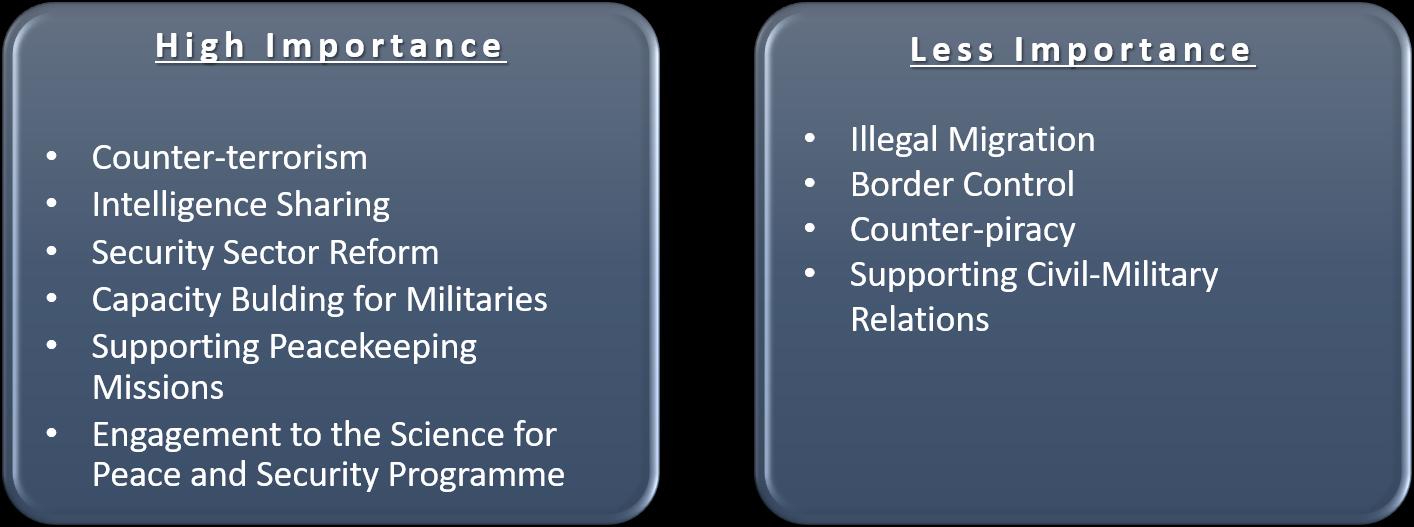
2 minute read
d. What are the Security Challenges and Opportunities in Africa?
Africa appears to be that “if it is unlikely to be achieved, do not even discuss it.” Admittedly, the behavior of other international organizations and of NGOs undermines perceptions because they often over-promise and under-deliver. Promises without delivery results in a lack of trust and confidence.
Academics, security scholars, think tank staff and journalists could be a focal point to develop mutual understanding between NATO and Africa. This collaborative action might manifest itself in in publications, academic events, training etc. ultimately creating a snowball effect and establishing a capacity for advocacy.
As for military activities, which were proposed mainly by African Union respondents, NATO should engage in peacebuilding and conflict resolution activities with a major focus on building partnerships with the local authorities, the police and the military. In fact, all these activities could be implemented using similar mechanisms to Partnership for Peace on the continent. The accumulated experience of the African Union should be seen as an opportunity for NATO to develop a better engagement with the African continent, especially in terms of promoting human security,16 rather than focusing on traditional conceptualizations of security. To begin with, supporting the African Union’s Pan-African Agenda could be a good starting point. Later, NATO, through partnership programs, could cooperate with local armies and it might, in the process, leave its interventionist image behind.
Ironically, the COVID-19 pandemic may also offer a specific opportunity to build trust and confidence through a possible disaster relief operation or similar support in a time of crisis in the future. NATO could support the continent to help manage such catastrophes, through the capacity it has already established over the decades of its existence.
The research also sought to identify the security challenges and opportunities in Africa based on the experts ’regional competencies. According to the experts, terrorism is consistently highlighted as the number one security challenge in Africa, while corruption is the second greatest challenge, followed by political violence, the COVID-19 pandemic and its impact, ethnic clashes and poverty.
16“ The right of people to live in freedom and dignity, free from poverty and despair. All individuals, in particular vulnerable people, are entitled to freedom from fear and freedom from want, with an equal opportunity to enjoy all their rights and fully develop their human potential…” the United Nations General Assembly Resolution 66/290, 25 October 2012, accessed 30 August 2021, https://www.un.org/en/ga/search/view_doc.asp?symbol=A/RES/66/290






